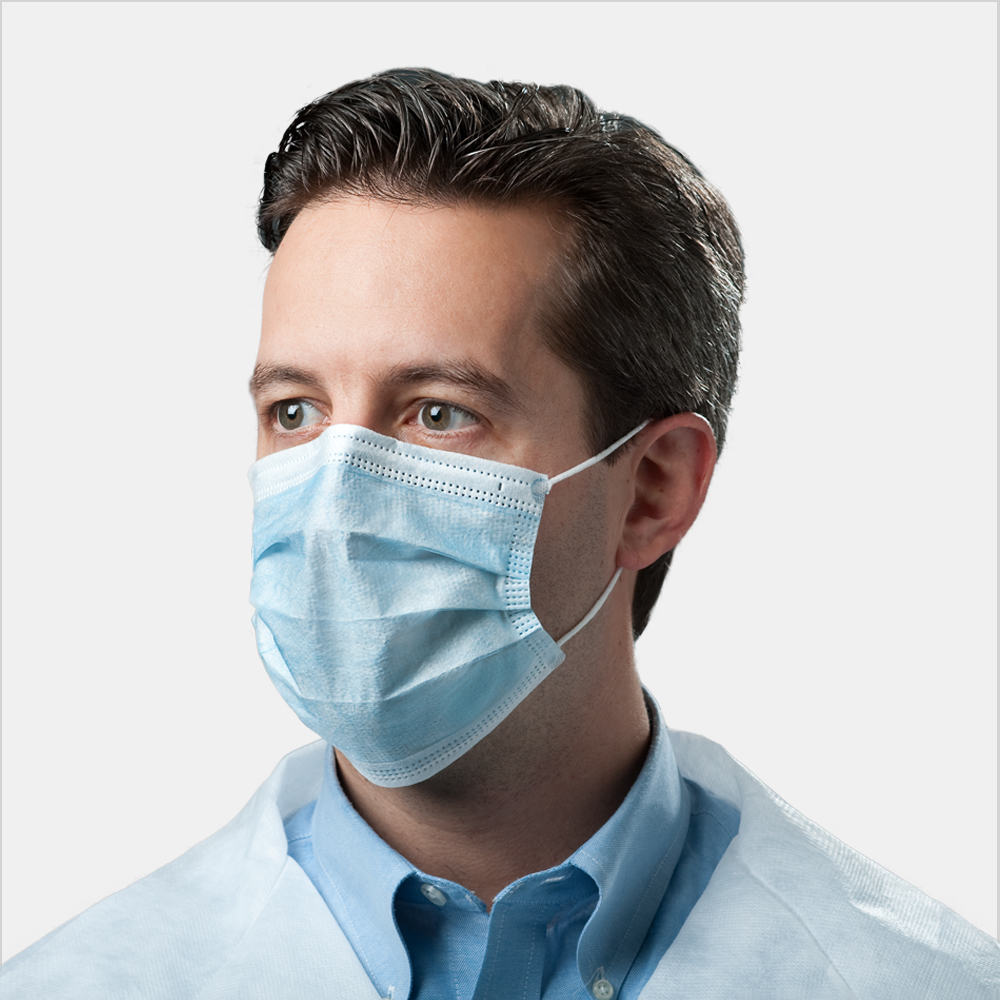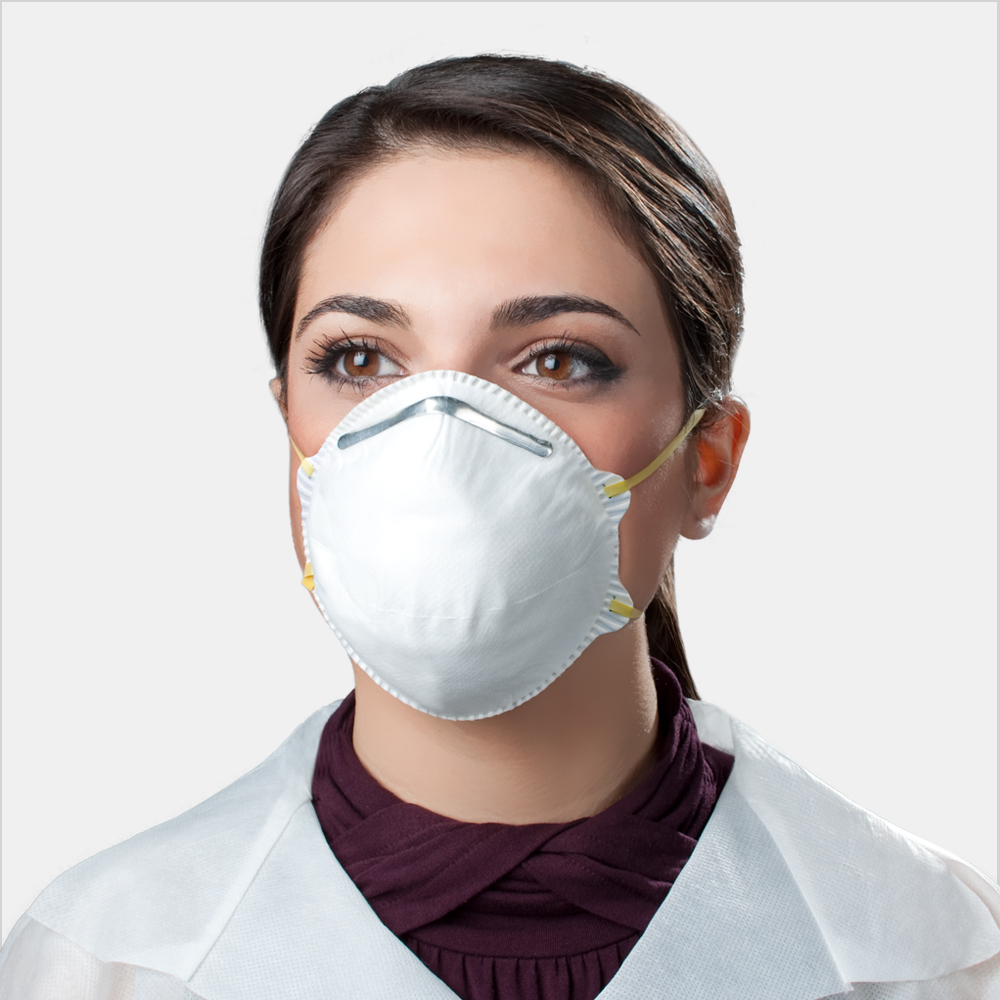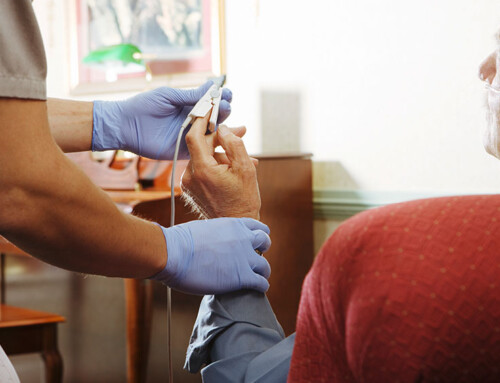The proliferation of STEM-related careers across a wide spectrum of fields means an abundance of work performed in laboratory settings. Professional roles within healthcare, scientific research, pharmacy, law enforcement, food safety, and environmental studies, to name a few, may involve working in a lab. PPE (personal protective equipment) is almost always necessary in lab work to protect health, science, and safety professionals from chemical exposures and other hazards.

What PPE is necessary for working in a lab?
The common image people may have of a lab worker likely includes one wearing a lab coat, gloves, a face mask, and protective eyewear. Each of these are critical pieces of PPE for lab settings, though not all may be necessary for every task. Depending on the type of work being performed, PPE selection may include:
- A lab coat, lab jacket, or lab gown to be worn whenever chemicals or biological materials are handled.
- Gloves, such as disposable gloves in chemo-rated latex or nitrile formulations, should be worn whenever handling hazardous materials, even in small quantities. No chemical-resistant glove protects against all chemical hazards so it is important to select the appropriate glove for each task.
- Eye and face protection are extremely important when working in a lab to guard against hazards that could cause eye or facial injury. Safety glasses and goggles provide protection against impact injury, while goggles designed for chemical splash protection are necessary for handling chemicals.
- Lab face mask options range from lightweight procedure face masks to respirators that provide effective protection against the inhalation of dangerous particulates.
The key to selecting protective wear for any laboratory setting is to choose the appropriate protection for the hazard present. Consulting with lab supply manufacturers or distributors for guidance may help guide selection on what and where to buy.
Lab coat, lab jacket, lab gown overview
A lab coat or other protective garment should be worn whenever chemicals or biological materials are handled, to protect clothing and exposed skin from contaminants. Lab coats provide optimal protection when buttoned or securely snapped closed.
When choosing a disposable lab coat consider the quality, fluid resistance level, and durability aspects of each. Tronex SMS670, for example, is a full-length lab coat crafted from fluid-resistant spunbond. Designed to provide reliable protection and comfort, it is ideal for moderate fluid-exposure settings.

SMS670 Full-length Lab Coat

6866BH Over-the-Head Gowns
Lab gowns are also a popular option, offering full-body coverage. Tronex 6866BH Over-the-Head Gowns with impervious film & thumb hooks provide excellent protection while retaining comfort and breathability during extended wear, which is ideal for applications where there is a high risk of fluid exposure. Fluid-impervious coating provides leading barrier protection against exposure to blood, bodily fluids, chemicals, and other infectious substances.
A range of additional options are available depending on need and preference.
Disposable gloves for lab protection
While some lab work may require non-disposable work gloves, disposable gloves are often chosen for routine laboratory work for convenience and cost effectiveness. Latex and nitrile formulations are the most popular and protective in lab settings. It is important to choose the appropriate glove type – i.e., chemical resistant, heat resistant, etc. – for the hazard present.
Chemo-rated examination gloves are considered a top choice for a range of lab applications as they offer barrier protection from bloodborne pathogens as well as resistance to chemotherapy drugs and other chemicals.
Tronex 9393 Nitrile Chemo-Rated Exam Gloves are crafted from an innovative nitrile material formulation features enhanced tensile strength and durability, offering added softness for
comfort and reduced hand fatigue.
For lab work that requires additional protection, Tronex 9662 Nitrile Exam Gloves offer a heavy-duty, extra-thick style, chemo-rated style with 12″ extended cuff and fully textured surface for optimal strength, puncture resistance, barrier protection, and chemical resistance.
As with all protective lab wear, finding the right lab glove is a matter of preference balanced against careful consideration of the particular setting and protection needs.

9393 Nitrile Chemo-Rated Exam Gloves

9662 Extra Thick Nitrile Chemo-rated Exam Gloves
Protecting airways and sensitive areas of the face in the lab
Face mask use in laboratories can range from lightweight procedure masks providing coverage to mouth, nose, and sensitive facial skin to sturdy surgical masks with fluid-resistant eye shield attachments. Respirator masks are critical in settings that may put the wearer at risk of inhaling airborne particles. The key to choosing the right face mask for lab use is to determine the appropriate protection necessary and comfort required for the task at hand.
A classic procedure face mask like Tronex 5040B offers soft, breathable material and elastic earloops for easy donning and a secure fit. Ideal for applications where fluid exposure is probable, this mask offers excellent protection and high comfort.
A high-quality disposable respirator mask, such as Tronex 536N95C Cone Style NIOSH N95 Respirator, provides effective protection against the inhalation of dangerous particulates. Precision crafted with a malleable nose bridge and inner foam seal that molds securely and comfortably to facial contours, Tronex 536N95C unisize masks are designed for extended wear.

5040B Procedure Face Mask

536N95C NIOSH N95 Respirator
For a full range of disposable laboratory protection PPE options, including lab coats, lab gowns, gloves, and masks manufactured at the highest level of quality and performance, Tronex Hong Kong offers an outstanding selection. Click here to learn more.
This Article Content has been made available for informational and educational purposes only. Tronex (Hong Kong) Limited hereby disclaims any and all liability to any party for any direct, indirect, implied, punitive, special, incidental or other consequential damages arising directly or indirectly from any use of the Article Content, which is provided as is, and without warranties.




Leave A Comment